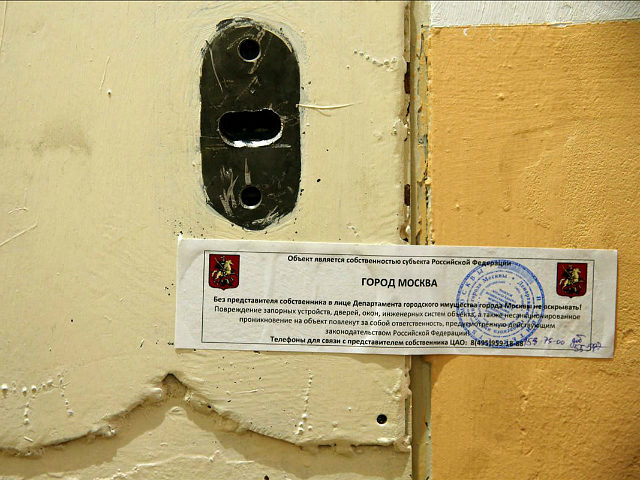A little surprise awaited employees of Amnesty International’s office in Moscow on Wednesday morning. The head of the office, Sergey Nikitin, said they “found that the door was broken and there were new locks.”
Lest anyone think it was the work of a roving band of renegade locksmiths, the Associated Press reports that photos “showed the door sealed up with an official notice from Moscow city authorities.” The NGO rented the office directly from Moscow’s municipal government for about twenty years.
For good measure, officials removed the office’s alarm system and cut off power, according to NPR.
Although Amnesty International reportedly had some trouble getting an explanation from Moscow, city authorities eventually said the lease had expired, the office was no longer subject to “contractual relations,” it had ignored a debt notice, and “the presence of third persons in it was illegal,” according to the BBC’s transcription of a Russian TV interview with city officials.
Amnesty International’s European director, John Dalhuisen, seemed a bit skeptical. “Given the current climate for civil society work in Russia, there are clearly any number of plausible explanations, but it’s too early to draw any conclusions. We are working to resolve the situation as swiftly as possible. We are 100% confident that we fulfilled all our obligations as tenants,” he said in a statement.
As the BBC observes, Amnesty International has been “strongly critical of the human rights situation in Russia,” while the Russian government has been even more strongly critical of groups that strongly criticize it.
In fact, Russia passed a law last year to enable the ban of “undesirable” foreign organizations on national security grounds, a law denounced by AI’s Moscow chief Nikitin as “another sobering sign of how the Russian authorities are quickly closing in on fundamental freedoms and the work of independent civil society groups in the country.”
NPR correspondent Lucian Kim notes that “organizations that criticize the Russian government are under increasing pressure,” and “those with funding from abroad have been branded ‘foreign agents.'”
NPR’s report implies that Amnesty International, which has never had this sort of trouble with Moscow authorities since it began renting its office space 20 years ago, might have annoyed the Russians with its report on possible war crimes in Syria.

COMMENTS
Please let us know if you're having issues with commenting.